

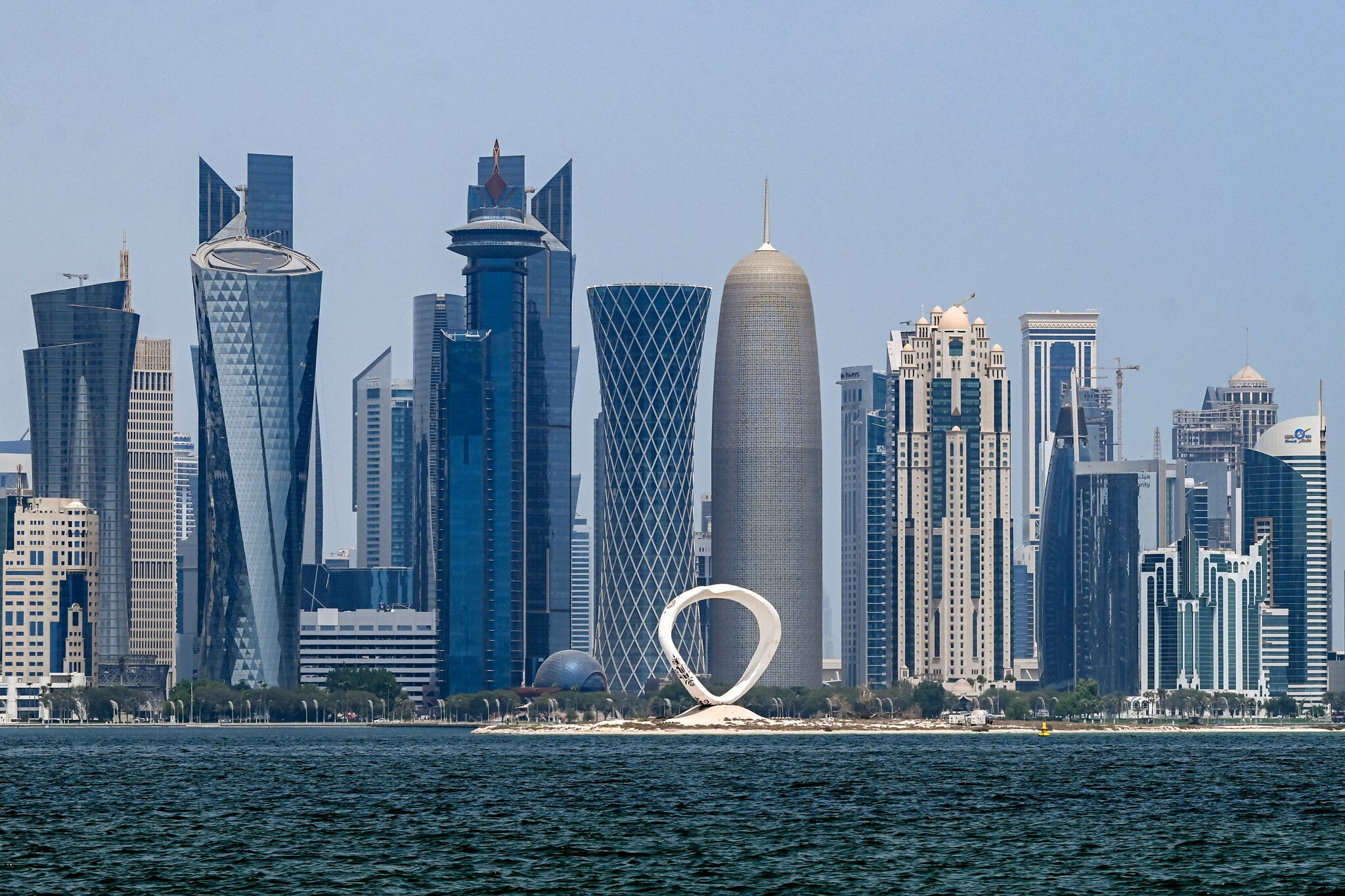
It was a day after he ordered a missile attack against Hamas leaders in Doha, and Prime Minister Benjamin Netanyahu was defiant.
While international outrage continued to build, the premier declared in a video statement that the strike served not only as a warning to the Hamas leaders in Qatar’s capital — who had prostrated themselves there in prayers of thanks as Hamas terrorists slaughtered Israelis on October 7, 2023 — but also “to Qatar and all nations who harbor terrorists.”
“You either expel them or you bring them to justice. Because if you don’t, we will,” Netanyahu vowed.
Three weeks later, sitting in the Oval Office beside US President Donald Trump, the premier changed his tune. Speaking into a receiver whose cradle was perched on Trump’s lap, Netanyahu apologized to Qatari Prime Minister Mohammed al-Thani, expressing regret over the Qatari security guard inadvertently killed in the attack and pledging to halt further strikes.
Soon after, Trump announced Israel’s and the Arab world’s approval of his Gaza ceasefire plan, and said that Jerusalem and Doha had agreed “to launch a formal, trilateral mechanism… to enhance mutual security, correct misperceptions and avoid future misgivings.”
Days later, the Israeli negotiating team was filmed shaking hands with and hugging a smiling Al-Thani in Sharm El-Sheikh after Hamas approved the ceasefire deal.
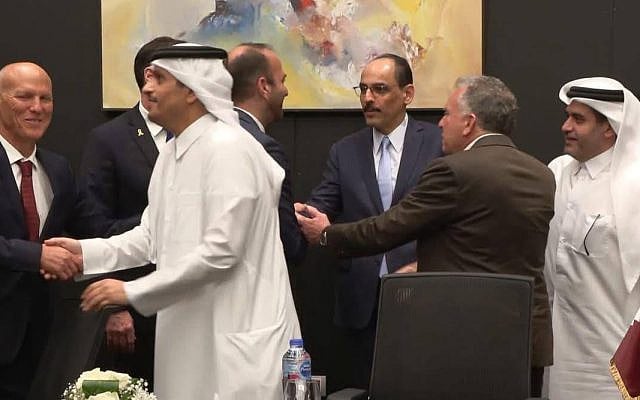
The rapid turnaround by Israel wasn’t a change in its approach to the powerful Gulf emirate. It was a continuation of a long-standing policy.
For decades, Israel has treated Qatar as both partner and ideological adversary, terror backer and vital mediator.
As Israel winds down its war in Gaza and can start thinking once again about its position in the region, it will have to contend with Qatar and its influence. Only this time, the energy-rich country emerges from the conflict with closer ties with Washington, backed by its Gulf neighbors, and poised to shape Gaza’s future.
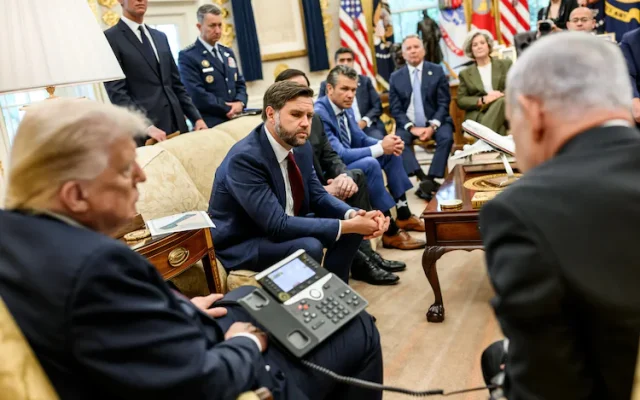
Israel could choose to go along with Trump’s push for a reset, or finally confront a rising power that was one of Hamas’s main backers. Judging from Israel’s actions over recent weeks, it still hasn’t decided whether it wants to embrace Qatar or challenge it.
The failed Doha strike appeared to threaten decades of well-established business, security, and intelligence cooperation between Israel and Qatar.
The two states never had formal diplomatic ties, but they established trade relations in 1996. Qatar closed Israel’s trade office in Doha amid regional pressure during the Second Intifada in the early 2000s, but allowed it to reopen in 2005 in the wake of Israel’s 2005 disengagement from Gaza. It closed for good in 2009 after the Operation Cast Lead conflict between Israel and Hamas.
Despite tensions, Israeli athletes occasionally competed in Doha, and during the 2022 World Cup, a special arrangement allowed Israeli diplomats in Qatar to assist visiting nationals.
All the while, Qatar positioned itself as a key US ally in the Gulf. The emirate hosts the largest American military base in the Middle East, has mediated for Washington on issues from Taliban talks to Iran diplomacy, and is granted special defense and security benefits since being designated in 2022 by then-US president Joe Biden as a “major non-NATO ally.”
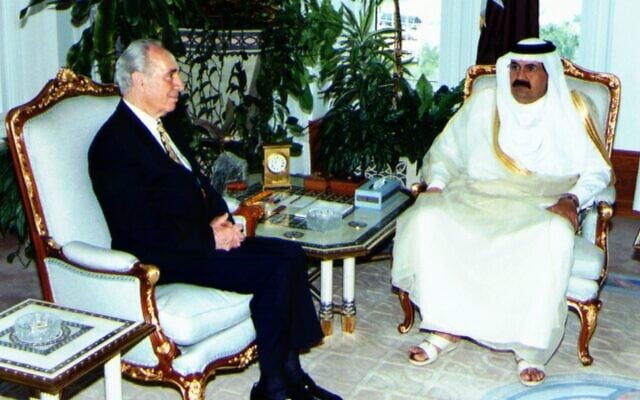
Trump has maintained that policy, praising Qatar’s “great job” in mediating during the Gaza war and even bolstering US protection for the emirate after the Israeli strike through a new executive order signed last week.
Since the Hamas invasion of southern Israel, Qatar’s skill as a mediator has been key in efforts to free Israeli hostages, broker ceasefires with Hamas, and shape a postwar future for the territory.
At the same time, Doha’s ability to mediate rests on its long-standing ties with Hamas, only one piece of the darker side of its role in the Middle East.
In 2012, after Hamas leaders were forced to flee Damascus after siding with anti-regime rebels in Syria, Qatar took them in, claiming the move had been coordinated with the US. Since 2018, with Israel’s quiet approval, Qatar has funneled hundreds of millions of dollars into Gaza — sustaining both the population and Hamas’s rule.
Qatar also created and funds the Al Jazeera network, banned by Israel last year for incitement to terror, and is accused by the IDF of direct collaboration with Hamas based on documents showing communication and staff ties to terror groups.
Israel’s leaders have kept channels open with Doha while repeatedly denouncing the country as a leading “funder of terror” and initiating a range of legal and political moves against it. Netanyahu even reiterated these grievances — “from support for the Muslim Brotherhood to how Israel is portrayed on Al Jazeera to support for anti-Israel sentiment on [US] college campuses” — outright during the forced apology with Thani.
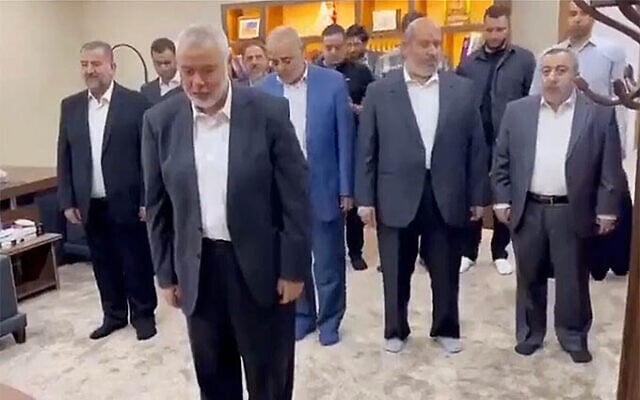
Israel isn’t alone in treating Qatar, at times, as a threat. In 2017, Saudi Arabia, the United Arab Emirates, Bahrain, and Egypt did everything short of declaring war on Doha, launching a blockade demanding that it cut ties to Islamists and terrorists, reduce cooperation with Iran, shutter Al Jazeera, and expel Turkish troops from a base there.
The crisis was resolved through a privately signed agreement in 2021, apparently driven more by exhaustion and pragmatic considerations in Washington than by Qatari concessions — a dynamic not unlike Israel’s own reluctant present accommodation.
For those in Israel and beyond who believe Qatar’s influence should be curtailed rather than managed, the strike in Doha was a long-overdue challenge to Qatar’s duplicity.
“The Qataris are the pleasant face of the Muslim Brotherhood,” said Danielle Pletka, senior fellow at the American Enterprise Institute. “The right thing would be, obviously, for them to be treated like the supporters of terrorism that they are.”
While US law mandates sanctions for state sponsors of terrorism, Pletka admitted such measures are unrealistic in the short term but urged Jerusalem to enlist international backing to expose “what Qatar is really doing.”
It remains unclear how Trump’s plan for ending the war will unfold, but Qatar appears set to play a central role in its implementation.
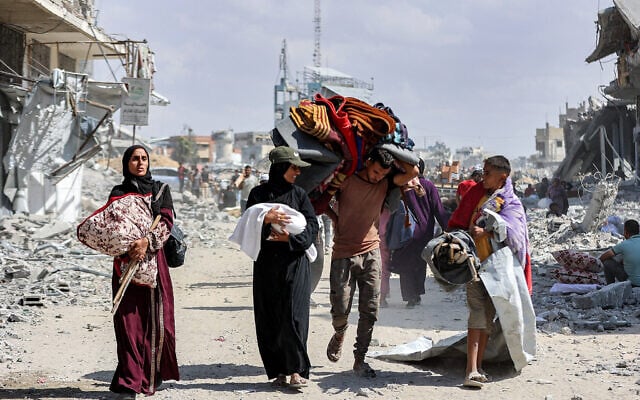
In the plan’s initial stage, all 48 hostages are to be released by Hamas in exchange for thousands of Palestinian prisoners held in Israel and a partial IDF withdrawal, leaving Israel little reason to fret about Doha’s involvement.
But the second stage — Gaza’s demilitarization and Hamas’s disarmament — will require far greater caution to safeguard Israel’s interests and avoid repeating past mistakes.
Yoel Guzansky, senior fellow at Israel’s Institute for National Security Studies, warned that Doha seeks “a foothold to influence what happens in Gaza [after the war],” and said that it “is obviously not good for Israel, because where there’s Qatar, there’s Hamas.”
Hamas has repeatedly floated stepping back from governance while retaining political power in postwar Gaza, in a style model similar to Hezbollah in Lebanon. “And the Qataris buy that,” Guzansky noted, warning Israel must prevent Doha from quietly nurturing Hamas’s return through such an outcome.
Israel has options for keeping Qatar’s malign influence in check. It could counterbalance Doha’s role by involving actors like Saudi Arabia and the United Arab Emirates in Gaza’s reconstruction, while enforcing strict mechanisms to prevent aid diversion to harmful actors, as Israel had tolerated in the past.
Egypt could also prove an effective counterbalance to Qatar’s influence.
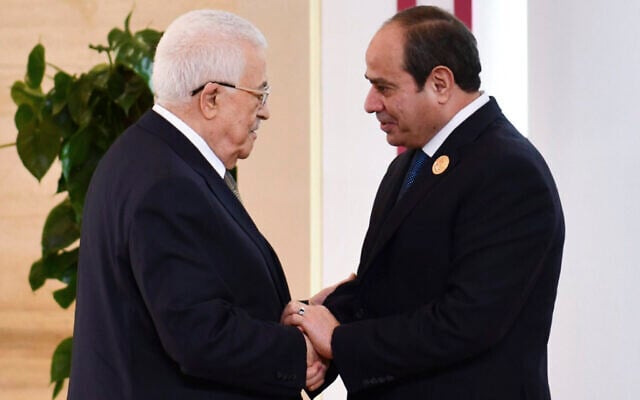
Eran Lerman, vice president of the Jerusalem Institute for Strategy and Security, noted that Egypt shares broader strategic, economic, and ideological interests with Israel, particularly the struggle against Islamist extremism.
Israel’s neighbor has decades of intimate military and intelligence cooperation with Jerusalem, sees Hamas as a threat, and controls Gaza’s southern border. Since Hamas seized control of Gaza in 2007, any Hamas members looking to leave or enter Gaza can only do so with Egyptian consent, which has granted Egypt ample influence over decision-makers on the ground in Gaza.
Lerman also warned that Qatar could coordinate with Turkey’s Recep Tayyip Erdogan, who said on Thursday that Ankara would take part in the reconstruction of Gaza.
“Qatar will increasingly become what you might call Erdogan’s sidekick, as part of his and his camp’s effort to make Turkey, in this era of Iranian decline, into the dominant regional power — something Israel has a very serious interest in preventing,” Lerman said.
On the other hand, Qatar has shown signs of being more pragmatic than ideological in its ties to Hamas, and may already be preparing to diminish the terror group’s capabilities in the Strip in exchange for more lasting diplomatic support.

“Right now, Qatar is in a position where it realizes that Hamas is a dead horse,” said Moran Zaga, Gulf scholar at MIND Israel. “Qatar’s connection to Hamas is pragmatic, not ideological, and I think Qatar has already started loosening those ties.”
Right now, Qatar is in a position where it realizes that Hamas is a dead horse.
“If Qatar wants to maintain levers of influence in the Palestinian arena,” Zaga said, “it realizes that Hamas will no longer serve as an effective lever. It will need to reinvent that lever in some new form.”
If postwar Gaza will indeed be administered by a temporary, transitional government of Palestinian technocrats, as outlined in the Trump plan, Doha’s usual method of achieving influence — “through people, and with money,” something it has allegedly also done in Israel, in the Prime Minister’s Office — won’t hold, said Zaga.
“Since this technocratic government isn’t meant to last — it won’t survive a year or even two — it doesn’t give Qatar enough time to form the kind of deep attachments it’s used to building to exert political influence. That puts it in a bit of a bind,” Zaga said.
Qatar will also now have to shift from competing with other Gulf states for influence in Gaza to cooperating with them — a change that could bring more moderate actors into play, though it remains to be seen whether and how those states will cooperate.
Major management changes at Al Jazeera over the past month, including the replacement of top executives, appear to also signal Doha’s readiness to shift. According to a Channel 12 report, citing an Israeli intelligence official, the overhaul was part of understandings between Doha and Washington aimed at reducing “the amount of incitement [the network] spreads throughout the Middle East.”
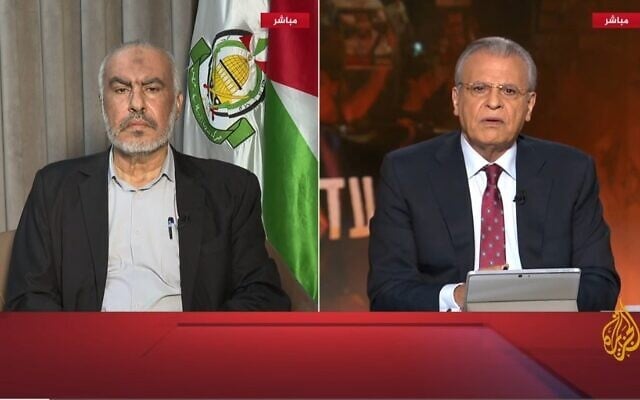
For Qatar, this pragmatism is consistent with its broader strategy of positioning itself as an indispensable mediator.
Nicholas Hopton, Britain’s ambassador to Qatar from 2013 to 2015, noted that Doha insists it hosts Hamas leaders “at the request of the US and other allies, on the logic that it’s better to keep such figures somewhere visible and containable.”
While it is “unlikely that Qatar will prioritize restoring whatever relationship it had with Israel,” he said, it will “try and play a mediating role, because that’s what the Qataris do.” The emirate, he explained, “is not an aggressive state. It’s small, but it has huge resources and can talk to everyone. It’s incredibly valuable for global powers to have an allied state that can play that role.”
For all the friction, Israel cannot afford to ignore Qatar’s reach. The emirate wields immense soft power, including in areas where the two countries share interests, such as in Lebanon’s army and even Israel’s Ashdod gas field.
“The relationship between Israel and Qatar will continue,” Zaga noted. “Qatar also understands it needs not only the Palestinian door, but the Israeli door as well.”
Moving forward, she said, “Qatar will still try to do everything it can during the period this technocratic government is active. It will look ahead to its next move — investing in the future Palestinian Authority government that will come after [PA President] Mahmoud Abbas. That’s where Qatar plans to be.”
Lazar Berman contributed to this report.

